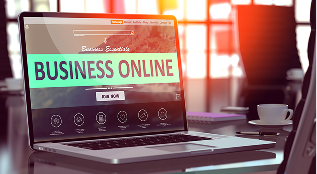Having the ability to email your customers can significantly enhance the likelihood of them engaging with your messages, rather than depending on social media algorithms to showcase your posts in their feeds. A larger number of individuals have access to email compared to social media platforms, and the format allows for the communication of more intricate information with ease. There are certain scenarios where email should undoubtedly be one of the channels you utilise.
1. Significant updates that have a direct effect on your clientele
Sometimes, it's crucial to take the lead and engage with your existing customers to inform them about issues that directly impact them. For instance:
whether your enterprise is operational or not, concerns regarding their order or project significant policy updates
revised contact information modified terms and conditions refund procedures
You can add links to your website for more information on any of these.
A brief reminder regarding GDPR: if you need to send an email to a customer concerning a specific order, that is typically acceptable. However, for emails related to broader purposes, in order to adhere to GDPR regulations, obtaining permission is essential.
Your website and social media channels can provide customers with the choice to subscribe to email updates.
2. Comprehensive details and guidelines
While social media posts are perfect for conveying simple messages and clear information, email serves as a more effective medium for sharing comprehensive details regarding changes in services.
Customers might require guidance on utilizing the current service in innovative ways. If a company is facing a shortage of staff at their call center, utilizing email is a great way to provide customers with information on how to set up and manage their accounts online.
If you are launching entirely new services. Instructors transitioning to online classes might find it necessary to send out a detailed email outlining the steps to access the platform or utilise videoconferencing tools.
It is crucial to make sure that customers have read and comprehended the instructions, especially regarding health and safety. Email serves as an excellent medium for sharing such information and encouraging customers to respond, confirming that they have read and comprehended the message or raising any queries they may have.
3. Prompt notifications
The challenge with social media is that organic posts often struggle to connect with a large portion of your audience. According to Hootsuite, only 5.5% of your Facebook followers are likely to see your posts in their feed, unless you opt for paid promotions.
This is where email plays a crucial role. When your clients have to be present on a specific date and require advance booking (such as for events, reservations, or appointments), or if they need to perform a particular action (like updating a subscription or downloading new content), or even if you have scheduled a meeting or call, sending email reminders can be extremely beneficial, both the day prior and on the actual day. Certain reminders can also be automated via your service provider.
4. Special deals and discounts
Promote your services and offers to your loyal customers and verified email list, ensuring that they are timely and provide real value (such as limited-time discounts, exclusive offers, new course announcements, and more). Customers tend to respond positively to offers that provide real value and are genuinely appreciated.
Be truthful with yourself - if it’s the standard 10% discount you offer regularly, then frequent reminders may not be well received. Sending a barrage of emails too often won't be effective either. Concentrate on delivering value to your customers, as aggressively seeking more business might yield counterproductive results.
5. Customised personal strategy
For enterprises with a limited customer base, email serves as an excellent medium for personalized communication from the owner or CEO, ensuring that the message is highly relevant to each individual customer. Building personal connections holds significant value, making it essential to consider this option, even for a select group of your customers. (Ensure you have the necessary consent before sending an email).
If a personalized approach is not feasible, consider segmenting your email database to tailor messages for specific customer groups—potentially based on their previous purchases, reasons for buying, or timing of their interactions with your business. A straightforward approach could be sending a personal ‘thank you’ email to everyone who has supported your business or shown patience during challenges like extended delivery times. A friendly reminder for those who have shopped for gifts during this season, as it can create a win-win situation for everyone involved.






